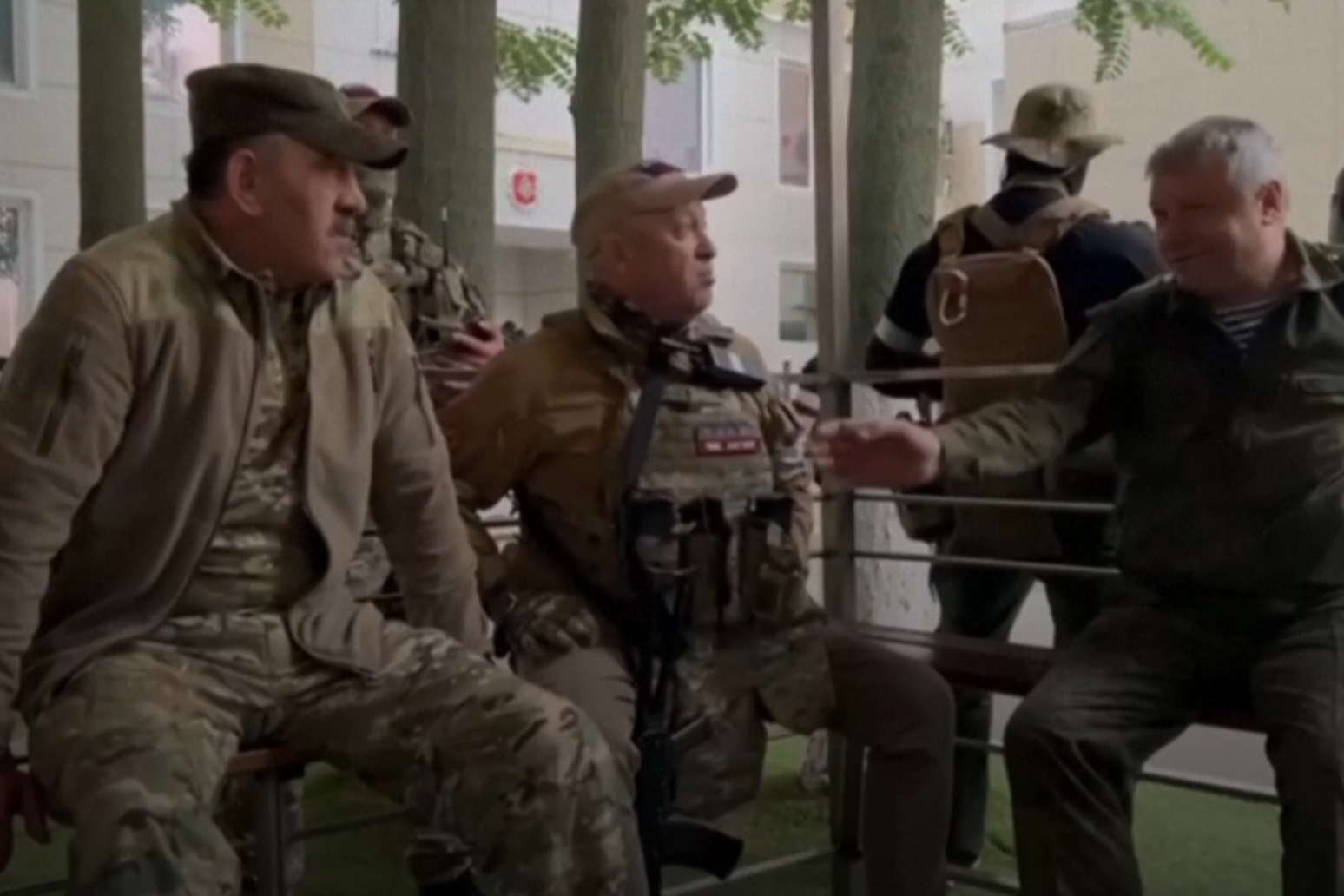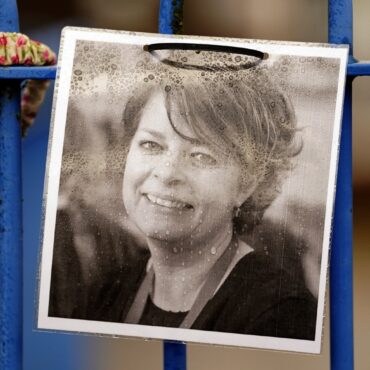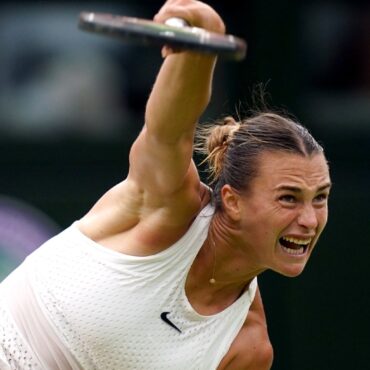-
 play_arrow
play_arrow
DukeBox Radio The Voice Of The Wellington Academy
-
 play_arrow
play_arrow
Jetstream Episode #15 - Festival of Education Celebration
Wagner Group chief defends patriots as rebelling forces enter key Russian city


President Vladimir Putin has vowed to defend Russia against the armed rebellion
Russian mercenary leader Yevgeny Prigozhin has denied allegations by President Vladimir Putin that he is betraying his country, and called his Wagner Group fighters “patriots”.
After the Russian leader denounced Wagner forces entering the southern Russian city of Rostov-on-Don, the group’s chief Yevgeny Prigozhin said: “Regarding the betrayal of the motherland, the president was deeply mistaken. We are patriots of our homeland.”
Mr Prigozhin said his fighters would not turn themselves in at the request of Mr Putin, as “we do not want the country to live on in corruption, deceit and bureaucracy”.
In an address to the nation on Saturday morning, Mr Putin vowed to defend Russia against the armed rebellion after Mr Prigozhin led his troops out of Ukraine and into the key city 600 miles south of Moscow.
The uprising, which Mr Putin called “a stab in the back”, is the biggest threat to his leadership in more than two decades in power.
The private army led by Mr Prigozhin appears to control the military headquarters in Rostov-on-Don that runs Russian offensive operations in Ukraine, the UK’s Ministry of Defence (MoD) said in an intelligence briefing.
As the fast-moving events unfolded in Russia, Ukrainian President Volodymyr Zelensky said Moscow is suffering “full-scale weakness” and that Kyiv was protecting Europe from “the spread of Russian evil and chaos”.
In his address, Mr Putin called the uprising by Mr Prigozhin, whom he did not mention by name, a “betrayal” and “treason”.
The Russian President said: “All those who prepared the rebellion will suffer inevitable punishment.
“The armed forces and other government agencies have received the necessary orders.”
Mr Prigozhin’s Wagner private military contractor has been fighting alongside Russian troops in Ukraine.
It is not immediately clear what his aims are, but the rebellion marks an escalation in Mr Prigozhin’s struggle with Russian military leaders, whom he has accused of botching the war in Ukraine and hamstringing his forces in the field.
“This is not a military coup, but a march of justice,” Mr Prigozhin said.
The Wagner Group chief confirmed on Saturday that he and his troops reached Rostov-on-Don after crossing the border from Ukraine.
He posted a video of himself at the Russian military headquarters in Rostov and claimed that his forces had taken control of the air field and other military facilities in the city.
Other videos posted on social media showed military vehicles, including tanks, on the streets.
Mr Prigozhin said his forces faced no resistance from young conscripts as they crossed into Russia, saying his troops “aren’t fighting against children”.
“But we will destroy anyone who stands in our way,” he declared in one of a series of video and audio recordings posted on social media, beginning late on Friday. “We are moving forward and will go until the end.”
Mr Putin condemned the rebellion, which comes at a time when Russia is “fighting the toughest battle for its future” as Western governments heap sanctions on Moscow and arm Ukraine.
“The entire military, economic and information machine of the West is waged against us,” Mr Putin said.
Russia’s security services called for Mr Prigozhin’s arrest after he declared an armed rebellion on Friday night.
In a sign of how seriously the Kremlin takes the threat, authorities declared a “counter-terrorist regime” in Moscow and its surrounding area, restricting freedoms and enhancing security in the capital.
It is not immediately clear how Mr Prigozhin was able to enter the southern Russian city or how many troops he had with him.
Mr Prigozhin said his aim was to punish defence minister Sergei Shoigu after Russian government forces attacked Wagner field camps in Ukraine with rockets, helicopter gunships and artillery.
Gen Valery Gerasimov, chief of the general staff, ordered the attacks following a meeting with Mr Shoigu at which they decided to destroy Wagner, Mr Prigozin said.
He added that Wagner’s forces shot down a Russian military helicopter that fired on a civilian convoy, although there was no independent confirmation of this.
Mr Prigozhin said he had 25,000 troops under his command and urged the army not to offer resistance.
After Putin’s address, in which the Russian leader did not mention concrete steps to suppress the rebellion but rather called for unity in the face of the revolt, officials and state media personalities sought to publicly reiterate their allegiance to the Kremlin and urged Mr Prigozhin to back down.
Vyacheslav Volodin, speaker of Russia’s lower house of parliament, the State Duma, said legislators “stand for the consolidation of forces″ and support Mr Putin, adding that “Wagner fighters must make the only right choice: to be with their people, on the side of the law, to protect the security and future of the Motherland, to follow the orders of the Commander-in-Chief”.
Foreign ministry spokeswoman Maria Zakharova said in a Telegram post that “we have one commander in chief. Not two, not three. One”.
While the outcome of the confrontation was still unclear, it appeared likely to further hinder Moscow’s war effort as Kyiv’s forces probe Russian defences in the initial stages of a counter-offensive.
The dispute, especially if Mr Prigozhin were to prevail, also could have repercussions for Mr Putin and his ability to maintain a united front.
In his Telegram channel, Mr Zelensky noted the rebellion and said “anyone who chooses the path of evil destroys himself”.
The Ukrainian leader said: “For a long time, Russia used propaganda to mask its weakness and the stupidity of its government. And now there is so much chaos that no lie can hide it.
“Russia’s weakness is obvious. Full-scale weakness. And the longer Russia keeps its troops and mercenaries on our land, the more chaos, pain and problems it will have for itself later.”
Orysia Lutsevych, the head of the Ukraine Forum at the Chatham House think tank in London, said infighting between the defence ministry and Wagner will create confusion and potential division among the Russian forces.
“Russian troops in Ukraine may well now be operating in a vacuum, without clear military instructions, and doubts about whom to obey and follow,″ Ms Lutsevych said.
“This creates a unique and unprecedented military opportunity for the Ukrainian army.”
The Wagner forces have played a crucial role in Ukraine, succeeding in taking the eastern city of Bakhmut, where the bloodiest and longest battles have taken place.
But Mr Prigozhin has increasingly criticised Russia’s military top brass, accusing it of incompetence and of starving his troops of weapons and ammunition.
Col Gen Sergei Surovikin, the deputy commander of the Russian group of forces fighting in Ukraine, urged the Wagner forces to stop any move against the army, saying it would play into the hands of Russia’s enemies, who are “waiting to see the exacerbation of our domestic political situation”.
In Washington, the Institute for the Study of War said “the violent overthrow of Putin loyalists like Shoigu and Gerasimov would cause irreparable damage to the stability of Putin’s perceived hold on power”.
At the White House, US National Security Council spokesperson Adam Hodge said: “We are monitoring the situation and will be consulting with allies and partners on these developments.”
Published: by Radio NewsHub
Written by: admin




